Hooked: “Break the Ice”Mobile games, almost as a rule, are predatory. The developers behind the worst offenders are masters of human psychology, and they wield the powerful behavior chemicals of dopamine and serotonin to their advantage. How? Why? This series will serve as a little bit of an exposé, delving deeply into the systems behind the mobile games many players love and unveiling how these systems trick your brain into cash-hemorrhaging habits. To begin, the Sim Gurus and Sims Mobile Game Changers are not the ones who make these rules. Instead, these predatory practices are the norm throughout the mobile gaming industry as a whole. Some games are more guilty of these practices than others, but on the spectrum of mobile games, from Clash of Clans to Candy Crush, all mobile games implement some semblance of the practices outlined in this article. The bottom line is that these practices yield exponential revenue from games that are technically “free-to-play.” Sims Mobile is no exception. This is how. Building your HabitNir Eyal’s “Hooked” model To make money from a certain player, mobile game developers must carefully design their games to lead people through a habit-forming model. Developers “hook” players through four tried-and-true stages. Trigger: First, the mobile game must get your attention. For Sims Mobile, this often comes in the form of a push notification. This is the event that causes you to pick up your phone or tablet to open the game. However, a trigger can also be social. Perhaps you’re scrolling Twitter or Facebook, and you see someone enjoying a brand new Sims Mobile feature or pack. This may remind you of your game, and you’ll open the application to enjoy your cute pocket people. You dress your Sims, send them to work, form relationships with other Sims, and all of these activities bathe your brain in dopamine, the reward chemical. Soon, you come to associate Sims Mobile with the pleasure you get from opening the game and seeing your Sims, encouraging you to form a habit. Action: Following the trigger, the player often acts. Again, this action is as simple as opening the game to check your Sims. Once more, you are on your way to forming a habit by responding to the “trigger.” Variable Reward: Once in game, the player encounters a slew of shiny baubles in the form of rewards. These awards: log-in bonuses, daily spins, randomized loot boxes, are varied; that is, the rewards change each time. This variance creates intrigue. It is this variability that encourages players to return to the game over and over. Investment: When you, as the player, invest your time, your money, your energy, your frustrations, and your pleasures into a game, this invests you in the game. This assures developers that you are unlikely to abandon the game. The more you play and the more money you spend, the more foolish you’ll feel if you walk away from the game for good. Therefore, when you encounter another trigger, you will respond to the trigger by opening the game, and the cycle continues. A slide from the “Let’s go Whaling” presentation at GDC Mobile free-to-play game developers milk funds from players in a variety of ways. Because freemium games are free, many players who enjoy such games will never spend cash on the game. In order to recoup revenue, developers must wring as much money as they can from the players who are willing to pay. This results in exorbitant purchasable pack prices, but... not at first. At first, developers must “hook” a player by converting them from a “free-to-play” player into a paying player. Developers do this by offering a reasonably priced pack early on in the game. For many Sims Mobile players, this was the Beginner’s Pack. For just $4.99, players received a chunk of currency, limited-time furniture, and some cute clothing items. By making this offer too good to pass up, developers can convince even the staunchest free-to-play player into shelling out real-world cash. Once the player buys such a good bargain, their brains now reconfigure the image of themselves in their minds. “Five dollars here and there isn’t bad,” a player might say to themselves. Of course, after this initial offer, the packs grow pricier. After a while, the player forms a purchasing habit. Having spent once, it doesn’t feel like that big of a deal to spend again. When a player has played the game for a while, they will become eager to make “progress.” They’ll want to reach the next level, max out careers and hobbies, and build the best home they can. At this stage, game developers offer “pay for progress packs.” For example, in Sims Mobile, players can upgrade the Eco Workshop with recycle tokens. Players can grind for these tokens, investing their time completing llamazooms, or they can buy these tokens in a series of progressively more expensive packs. You can spend time or money to progress. Developers want both, but they much prefer the latter. Later in the game, once a player has effectively maxed progress, they fall into the “consumables” phase. Essentially, players who are here find enjoyment in collecting more virtual items. They can do so through events or, again, purchasing these items through limited time offers. Another GDC slide from “Let’s Go Whaling.” Developers purposely create limited-time offers to panic player brains into making in-game purchases. Scarcity frightens players; no one wants to miss out on the next cool thing. So instead of saving their pennies, players shell out cash for items they don’t need just because they know the item will soon disappear. This is why most Sims Mobile offers have a timer. “You have six days and twenty hours to spend $11.99.” An increasing number of Sims Mobile players are disgruntled because they now find themselves in the “consumables” phase. Hopelessly hooked onto the pocket people mobile game, these veterans find themselves bored with lack of progressive gameplay and the poor quality of offered virtual products.
Here is the rub: veteran players want consumables, but they also crave the progressive gameplay that hooked them in the first place. Sims Mobile must balance quality gameplay with in-app purchases to keep players playing and, honestly, spending happily. Will they? Only time will tell.
4 Comments
2/19/2021 10:24:57 pm
This is a very good blog. I learned this blog about games
Reply
Mobile games are all the rage and now that the holidays are coming it’s a good time to take advantage of them. You don’t have to carry anything else in your suitcase except your mobile, Maybe you should read these <a href="https://globalgame-news.com/"> globalgame-news </a>
Reply
Bdhddbhddjhd
6/25/2021 06:59:13 am
Gdjdjf
Reply
Kirsten
7/15/2022 11:18:46 pm
Great post. I’m going to think of this “Hooked” model every time I feel myself being roped into spending way too much money. The “panic purchases” initiated by those limited timed events are the most predatory part of the game in my opinion and I’m not proud to admit it’s worked on me way too many times. You put so much time and spend several days on an event only to be unable to finish because god forbid you didn’t spend every waking moment (or dollar) on the game. Then you’re mere hours away from the goal, the entire reason you spent all this time in the first place, only to see you actually don’t have enough time or resources to finish it unless you fork out some money to get ahead. I admittedly fell into that trap hook line and sinker recently but then I felt sort of grossed out and taken advantage of after it. I’m learning to saying “Oh well, screw it” and not give in.
Reply
Leave a Reply. |
Categories
All
Archives
July 2024
Archives
July 2024
Yeah, it is an ad, want to help keep them off our site? Become a Simmer Supporter! |

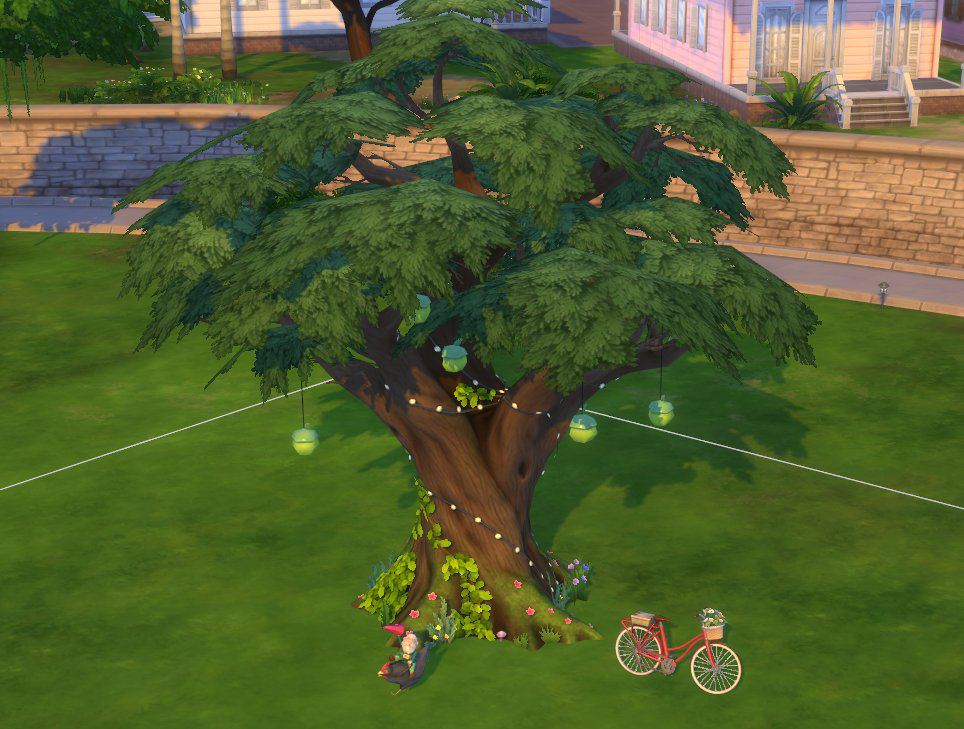

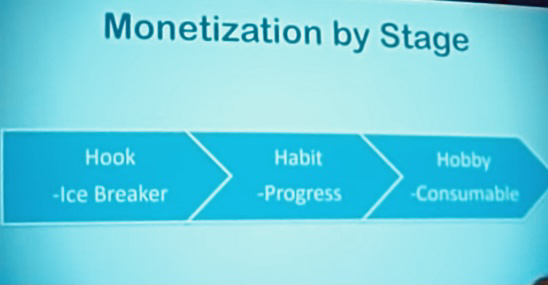
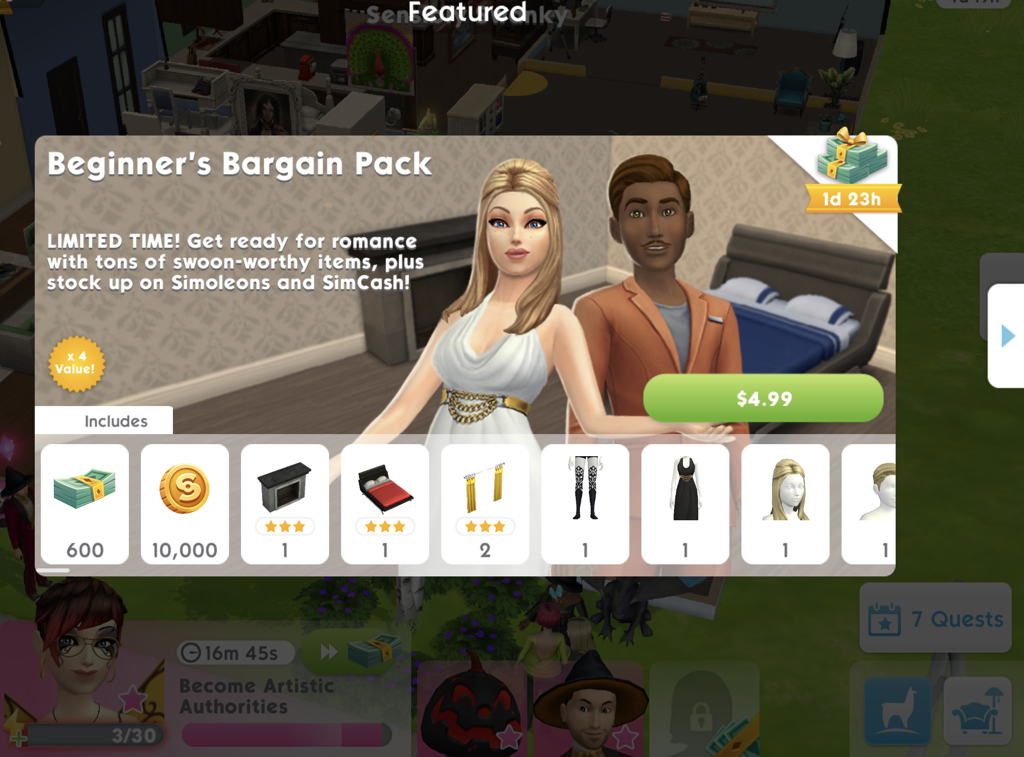

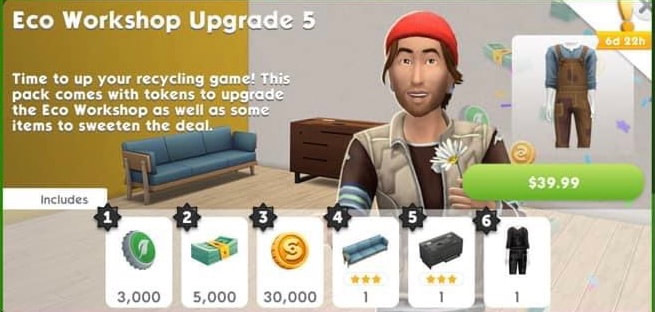
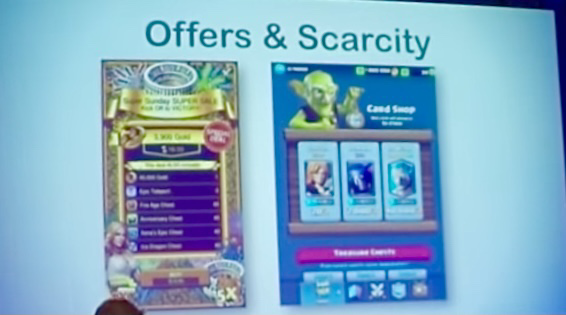
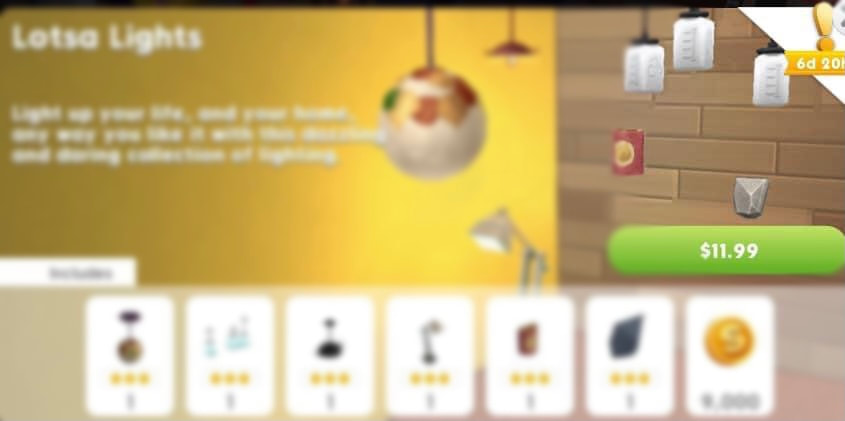



 RSS Feed
RSS Feed